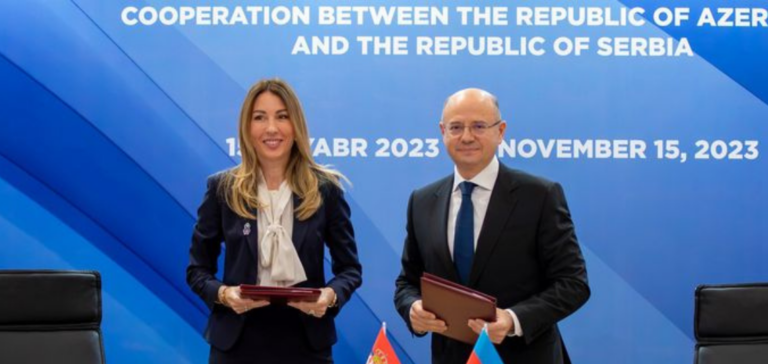In a significant step towards greater energy autonomy, Serbia has taken a decisive step by concluding a gas import agreement with Azerbaijan. The Serbian Minister of Energy and Mines, Dubravka Djedovic Handanovic, announced the signing of a commercial contract between Srbijagas, the Serbian gas group, and SOCAR, its Azeri counterpart. This agreement will initially enable Serbia to import up to 400 million cubic meters of natural gas.
Reducing Serbia’s energy dependence on Russia
This partnership marks a significant change in Serbian energy policy, traditionally dominated by heavy dependence on Russia. For decades, Serbia had granted Russia a virtual monopoly on its energy supplies. This has manifested itself in the construction of pipelines dedicated exclusively to Russian gas and the sale of a majority stake in NIS, its gas and oil company, to the Russian giant Gazprom.
Geopolitical and economic implications of the Agreement
Last year, Serbia drew criticism from the European Union for signing a new long-term contract to import Russian gas. The decision came against a tense backdrop, with the European Union seeking to reduce its energy dependence on Moscow following Russia’s invasion of Ukraine in February 2022. Although Serbia officially condemned the Russian invasion of Ukraine at the United Nations, it did not join the sanctions against Moscow.
Serbia’s Future Prospects in European Gas Transit
The agreement with Azerbaijan therefore represents an important step towards the diversification of energy sources. According to the Serbian minister, this bilateral agreement will not only diversify sources of supply, but also strengthen Serbia’s position as a transit country for gas supplies to Central Europe. The Minister also highlighted the possibility of Serbia importing billions of cubic meters of Azeri gas annually from 2026.
The effectiveness of this agreement depends, however, on the completion of a gas interconnector linking Serbia to Bulgaria, connected to the pipeline between the two countries. The project is scheduled for completion in the coming days.
Serbia’s initiative reflects a growing awareness of the geopolitical and economic issues surrounding energy. By diversifying its sources of supply, Serbia is seeking not only to free itself from dependence on Russia, but also to consolidate its sovereignty and strengthen its strategic position in Europe.
Serbia’s agreement with Azerbaijan represents a major strategic pivot, testifying to its desire for energy independence and partner diversification. This development could redefine energy dynamics in Eastern Europe, giving Serbia a key role in energy transit to Central Europe.






















